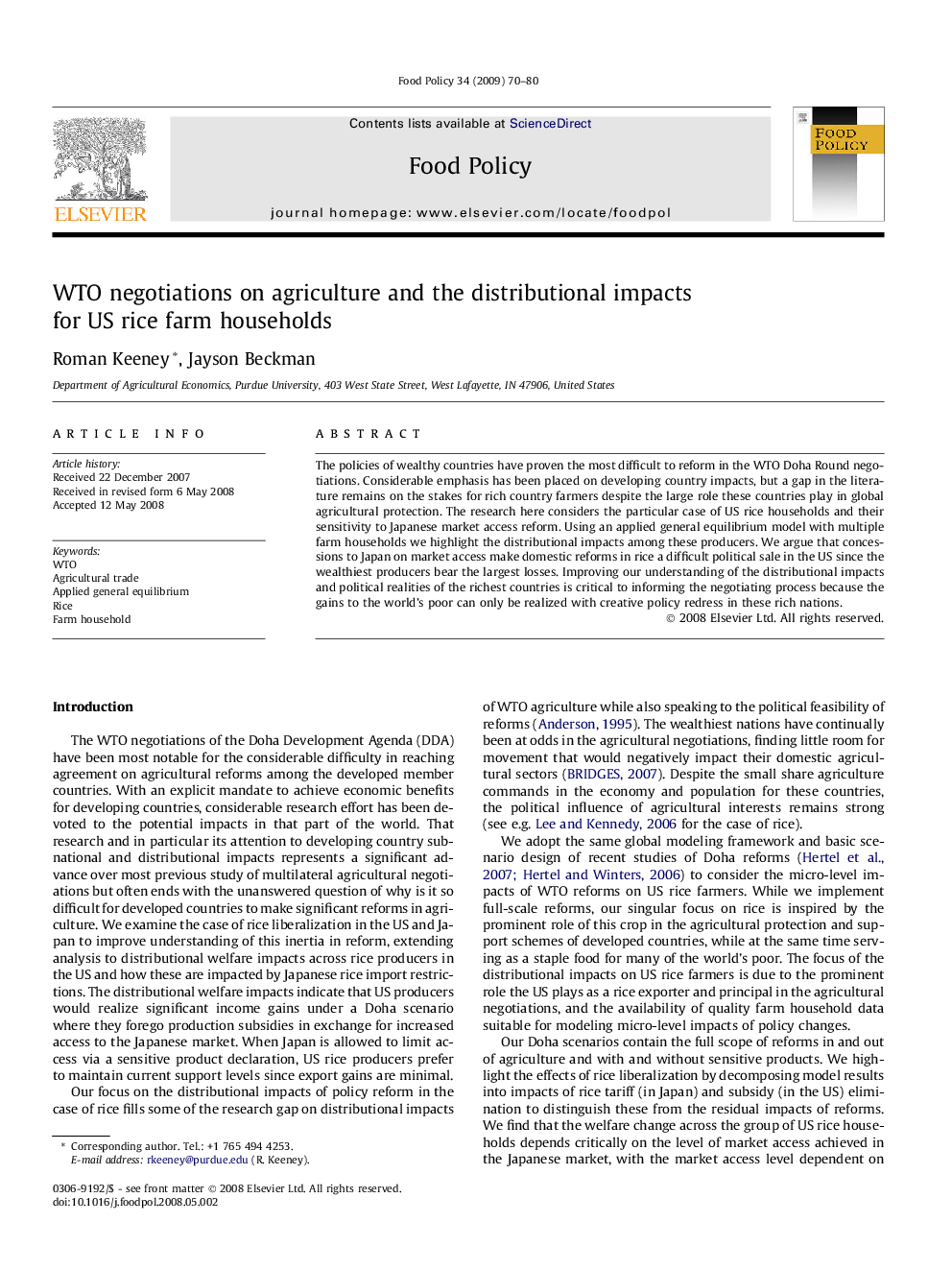| Article ID | Journal | Published Year | Pages | File Type |
|---|---|---|---|---|
| 5071164 | Food Policy | 2009 | 11 Pages |
Abstract
The policies of wealthy countries have proven the most difficult to reform in the WTO Doha Round negotiations. Considerable emphasis has been placed on developing country impacts, but a gap in the literature remains on the stakes for rich country farmers despite the large role these countries play in global agricultural protection. The research here considers the particular case of US rice households and their sensitivity to Japanese market access reform. Using an applied general equilibrium model with multiple farm households we highlight the distributional impacts among these producers. We argue that concessions to Japan on market access make domestic reforms in rice a difficult political sale in the US since the wealthiest producers bear the largest losses. Improving our understanding of the distributional impacts and political realities of the richest countries is critical to informing the negotiating process because the gains to the world's poor can only be realized with creative policy redress in these rich nations.
Related Topics
Life Sciences
Agricultural and Biological Sciences
Food Science
Authors
Roman Keeney, Jayson Beckman,
